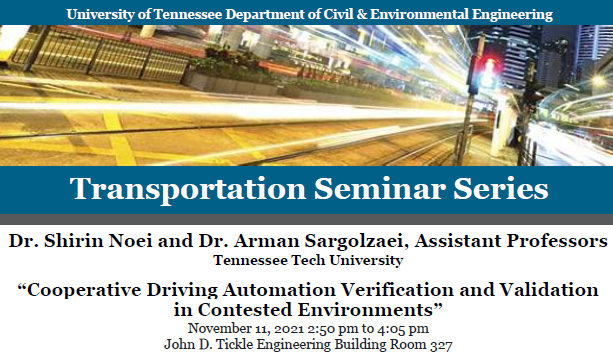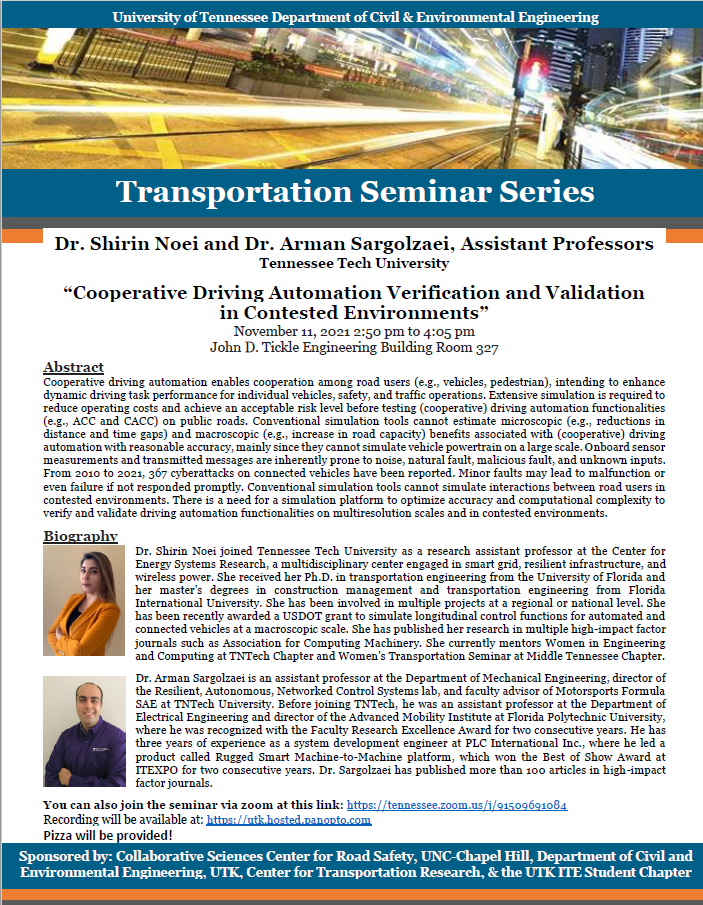Dr. Sargolzaei and Dr. Noei will present at the Transportation Seminar Series at the University of Tennessee-Knoxville on November 11, 2021 2:50 pm to 4:05 pm.
Abstract :
Cooperative driving automation enables cooperation among road users (e.g., vehicles, pedestrian), intending to enhance dynamic driving task performance for individual vehicles, safety, and traffic operations. Extensive simulation is required to reduce operating costs and achieve an acceptable risk level before testing (cooperative) driving automation functionalities (e.g., ACC and CACC) on public roads. Conventional simulation tools cannot estimate microscopic (e.g., reductions in distance and time gaps) and macroscopic (e.g., increase in road capacity) benefits associated with (cooperative) driving automation with reasonable accuracy, mainly since they cannot simulate vehicle powertrain on a large scale. Onboard sensor measurements and transmitted messages are inherently prone to noise, natural fault, malicious fault, and unknown inputs. From 2010 to 2021, 367 cyberattacks on connected vehicles have been reported. Minor faults may lead to malfunction or even failure if not responded promptly. Conventional simulation tools cannot simulate interactions between road users in contested environments. There is a need for a simulation platform to optimize accuracy and computational complexity to verify and validate driving automation functionalities on multiresolution scales and in contested environments.


